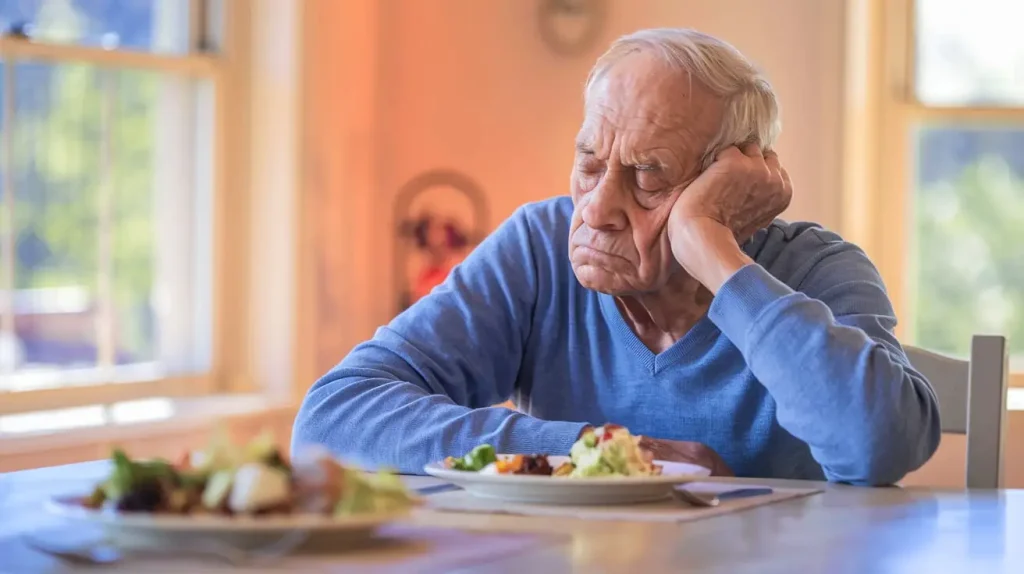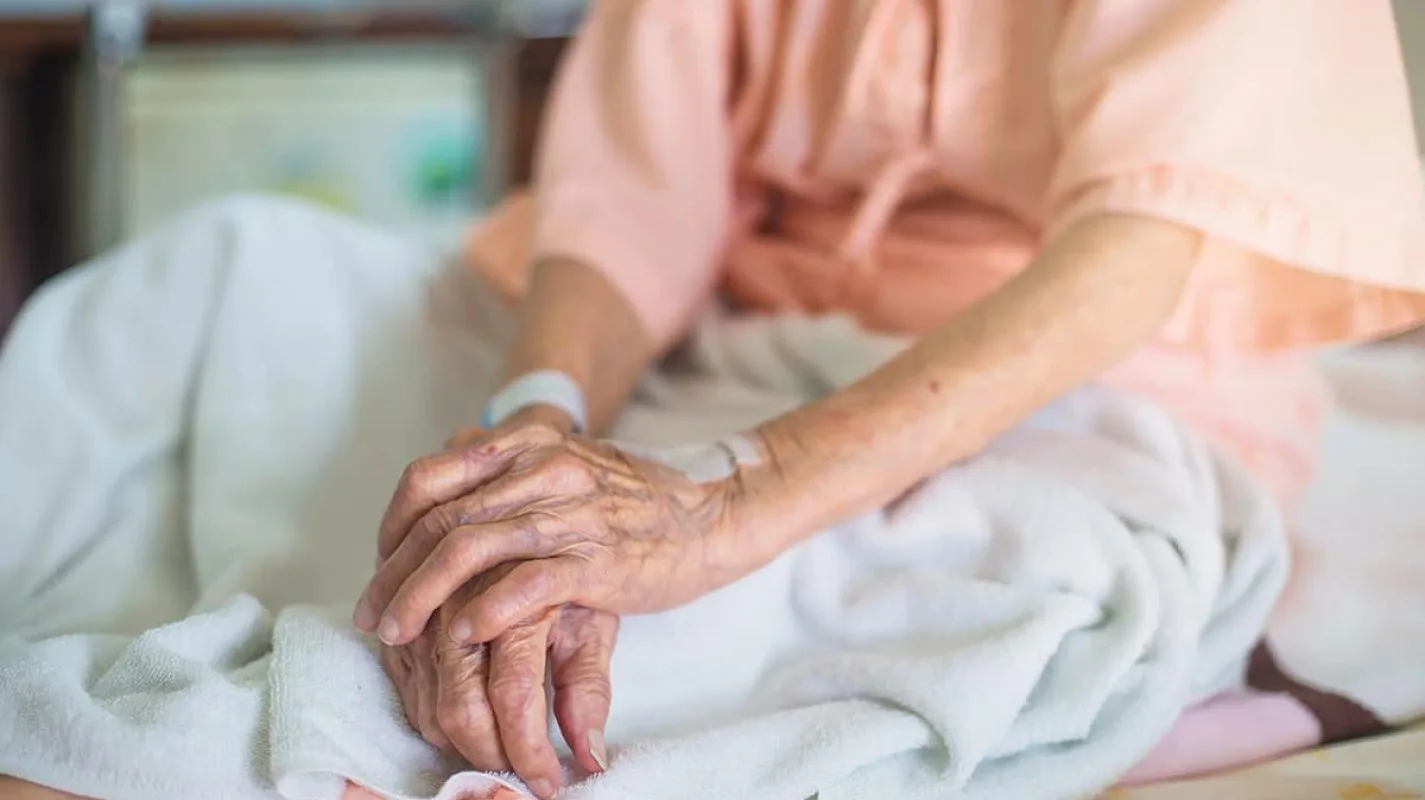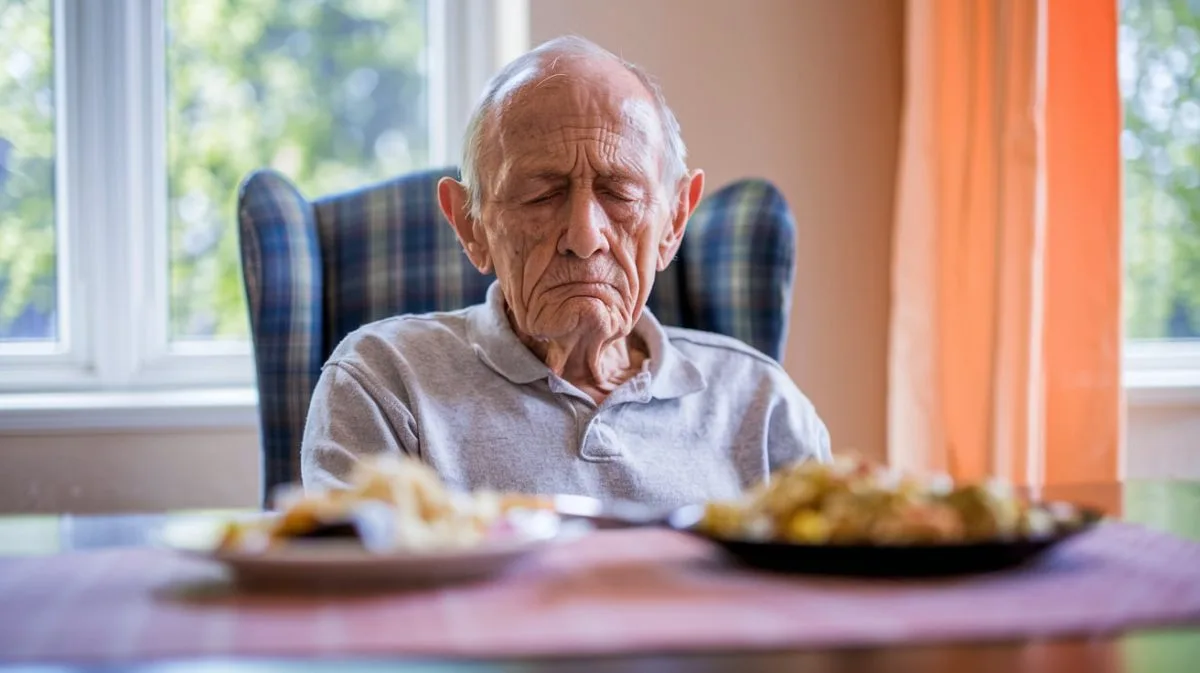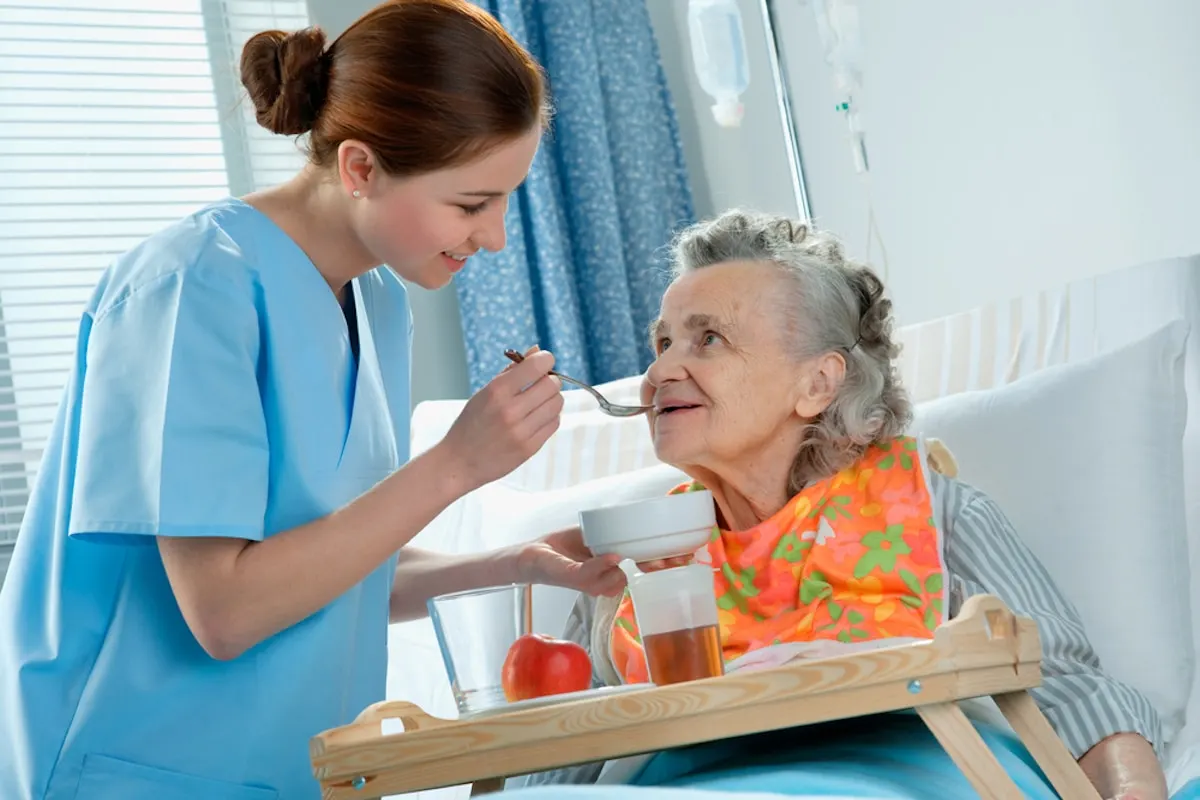
Elderly Malnutrition Treatment + Causes, Symptoms & prevention
How is elderly malnutrition treatment and what food is good for malnutrition in the elderly? Having a proper diet plan is important at all ages, but it is more important among seniors because it has a significant impact on their health. As you get older, many changes occur in your body. These changes also affect the nutrition of the elderly and change their nutritional needs.
For example, suffering from some diseases, such as cardiovascular problems, makes the elderly unable to eat fatty or sweet foods. Or if they suffer from high blood pressure, consuming salty and sweet foods will be harmful for them. Due to the importance of nutrition, a suitable diet plan should be considered for the needs of the elderly. How is malnutrition treated in the elderly? In this article from the humanhealthmag, we talk about elderly malnutrition treatment and examine its causes and prevention methods.
What is Malnutrition in Older Adults?
The body of each of us needs a certain amount of nutrients (protein, vitamins, minerals and calories) during the day. The body’s need for nutrients changes in different age periods. For example, the body’s need for some nutrients decreases in old age compared to youth. If the body’s need for nutrients is not met in a period of time, the elderly suffer from malnutrition.
Malnutrition in the elderly is one of the problems that causes great concern for the elderly and their families. Malnutrition occurs when an elderly person’s diet does not provide enough or balanced nutrients to maintain his health. Inadequate nutrition causes growth delay among children and adolescents and weight loss and wasting in old people.

If the body does not get a balanced amount of nutrients, the person becomes malnourished and the result may be obesity and overweight. In this situation, the calorie intake is more than usual and should be treated. In the following, we will discuss about elderly malnutrition treatment.
Types of Malnutrition in Adults
Elderly malnutrition includes two main types: undernutrition and overnutrition, which we will review in this section.
- Lack of nutrients: The most common type of malnutrition is the lack of nutrients in the body. In this state, the body does not receive the required protein, calories, and micronutrients, and this itself leads to problems such as stunted growth, short stature for age, and weight loss.
- Overfeeding: Excessive consumption of some foods such as protein, calories or fat also causes malnutrition in a person. Despite the fact that the number of this type of disease is less than type 1, it is still considered a serious risk for people. This often leads to excessive weight gain or obesity.
Causes of Malnutrition in the Elderly
In your opinion, what are the factors that may lead to malnutrition in elderly people? Isn’t it better to understand what factors cause malnutrition in the elderly, before dealing with treatment for malnutrition in the elderly?
Many people think that malnutrition is caused only by hunger caused by lack of access to food and consumption of unhealthy foods. When a person reaches old age, he/she is exposed to dangerous chronic diseases that are effective in causing malnutrition. For example, diabetes in the elderly, various types of cancer and Alzheimer’s disease decrease appetite. Thus, eating becomes a difficult task for the elderly. Would you like to learn about tricks to stimulate appetite in the elderly?
During the treatment period of these diseases, the metabolism of the body undergoes changes. Dietary restrictions that are applied to treat diseases may promote malnutrition in the elderly. The use of certain drugs or alcohol addiction may also negatively affect the ability of the elderly to absorb nutrients and their appetite. Older people are hospitalized for longer periods of time. Long-term presence in medical centers and neglecting the issue of feeding the elderly causes malnutrition.

Dementia is one of the mental diseases that have various consequences and threatens the elderly more. One of the complications of dementia is forgetting the body’s need for food or changing the eating habits of the elderly, which may lead to malnutrition. Depression, immobility, loneliness and sadness are also among the psychological factors that lead to a decrease in appetite and as a result malnutrition in the elderly; So what should be done for elderly malnutrition treatment?
Elderly Malnutrition Treatment
The treatment of malnourishment or lack of body nutrients in elderly people is done after visiting a healthcare professional and first examinations with the aim of checking the physical condition of adults. Of course, many of these examinations are similar in different age groups. The healthcare professional determines how much nutrients the body of the elderly will need for treatment.
Therefore, the proper diet is considered to provide these nutrients in the long term. Along with the diet, the consumption of food supplements is also recommended to people, and this is completely dependent on the physical condition of the person.
If physical and mental diseases have an effect in causing malnutrition, then you should think about treating them first. Your healthcare professional may refer you to specialists who can arrange a better treatment in consultation with each other. Do not forget that prescribing medicine and malnourishment treatment methods for elderly requires more sensitivity than other groups in the society. Malnutrition in the elderly in certain cases even leads to depression and care should be taken for these loved ones.
Elderly Malnutrition Treatment in Traditional Medicine (Herbalism)
It is good to know that traditional medicine has an amazing effect in the elderly malnutrition treatment. Of course, in this regard, important points must be observed, some examples of which will be mentioned in this section.

- Easy to swallow foods for elderly are the best option. These foods should be given to the elderly in small amounts and at different times.
- Avoiding foods that are cold nature such as apple, celery, tomatoes, green tea, mung beans, soybeans, tofu, crab, duck & fish meat and, etc.
- Lamb and mutton, honey eggs, simple soups and stews, and broth make them more healthy as much as possible.
- Ingerdients such as fenugreek, chard, dill, zante currants, grapes, raisins, figs, walnuts, rose water, bitter orange flower, Salix aegyptiaca, and all kinds of balang, ginger and apple jams are useful for the elderly.
- Elderly people often do not experience high quality sleep due to their illness and problems. At the same time, research has proven that high quality sleep has a great impact on the nutrition of the elderly. It is recommended that these people eat Shalam early and sleep early. Drinking warm milk also improves their sleep quality.
- Exercising can have a great effect on the treatment of malnutrition in the elderly. In fact, exercise increases instinctive heat and helps to lose weight a lot. One of the simple and useful aerobic exercises for weight loss is walking.
Home Treatment of Severe Malnutrition in the Elderly
If malnutrition is of the first type (i.e. lack of nutrients), people should be patient and devote a lot of time to their recovery in order to gain weight. While going to the doctor and getting the necessary guidance, you can also consider home treatment.
Try to use foods that are high in calories. Calories are just as important for weight loss as they are for weight loss. According to research, daily consumption of 250 calories causes weight gain of half a kilo. Legumes, grains, meat, rice, dried fruits and bread are high-calorie foods that you can include in senior diet.
To treat severe malnutrition in the elderly and adults, be sure to have 6 meals in your daily list, which include three main meals and three snacks. Breakfast, lunch and dinner should be accompanied by heavy food; Especially dinner, which will help you gain weight a lot.
In addition to increasing the number of meals, paying attention to the quality of food is also important. Nutritious foods such as animal and vegetable proteins, fresh fruits and vegetables, whole grains and healthy fats should be used. Also, drinking nutritious liquids such as smoothies or milk can help increase calorie intake.
Finally, it is recommended that people consult with a nutritionist to monitor their health status and ensure they are getting enough nutrients to create a plan tailored to their specific needs.

Malnutrition Symptoms in Elderly
Now that we are familiar with elderly malnutrition treatment, you would like to know what symptoms this disease may have. Malnutrition in the elderly is not one of the complications that have complex symptoms. Usually, by observing a few simple signs, you should be sensitive to the occurrence of malnutrition in the elderly, which include:
- Extreme weight loss without a planned diet
- Feeling physically weak and tired
- Anorexia
- Swelling in one area of the body
- Eating little and at a specific time of the day
Prevention of Malnutrition in the Elderly
To prevent malnutrition, you must consider several important points at the same time. Some of these tips are related to diet and some others are related to the physical and mental health of the elderly. Here are some of the necessary measures to prevent malnutrition in the elderly:
- Prepare a healthy and balanced diet for the elderly.
- Be sure to monitor and follow up so that the diet is fully followed.
- If medications have a negative effect on the appetite of the elderly, consult a doctor to change them.
- Remove destructive mental factors such as stress and anxiety from the elderly.
- Prevent dehydration in the elderly by consuming healthy fluids.
- If your teeth are weak, think of an alternative way to avoid eating problems.
- Tasty foods are very useful in encouraging the elderly to eat.
- Increase the number of meals and instead reduce the amount of food per meal.
Concluding Remarks
In this article, we talked about elderly malnutrition treatment. Malnutrition can occur at any age, but it is dangerous in old age and should be treated immediately. This problem may occur for reasons such as perceptual disorders (smell, hearing, vision, taste problems), taking some drugs, suffering from some diseases, environmental conditions, etc. In this situation, having a proper food plan has a great impact on his recovery. It is better to include a variety of nuts, proteins, vegetables, fruits and food containing other vitamins and minerals in the diet of the elderly.

FAQs
Why Do the Elderly Suffer from Malnutrition?
Lack of access to sufficient food, unhealthy diet, occurrence of underlying diseases, etc. are among the factors that cause malnutrition in the elderly.
What Are the Warning Signs of Malnutrition in the Elderly?
Severe weight loss, loss of balance, non-healing of scars and permanent fatigue are among the dangerous symptoms that are signs of acute malnutrition in the elderly.
What Are the Useful Foods for Treating Malnutrition in the Elderly?
Good foods for malnutrition include quality proteins (meat, fish, eggs), whole grains (brown rice, oatmeal), fresh fruits and vegetables, healthy fats (olive oil, avocado), and calorie-dense foods (peanut butter).
What Are the Complications of Malnutrition in Adults?
Malnutrition in the elderly can cause heart diseases, obesity and even diabetes.
